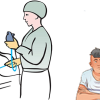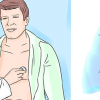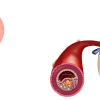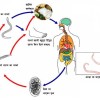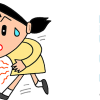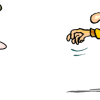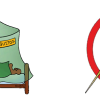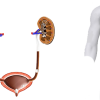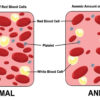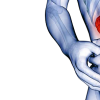Tag: anemia , body swelling , fatigue , high blood pressure , kidneys , nephrology , reduced or excess urine , sleep disturbance , ureter , urinary , urinary system , urology
-
Blood Cancer (Leukemia)
Introduction Blood cancer encompasses cancers that originate in the bone marrow (organ that produces blood cells). Most of the blood cancers involve white blood cells (cells that fight infection) and are called leukemia. Cancers can also develop in the red blood cells (cells that carry oxygen) and p
-
Black stools
Black stools can be due to bleeding in gastrointestinal (GI) tract or ingestion of certain medications (iron, bismuth) or certain food (blueberries). Black, tarry, sticky and smelly stool is caused by bleeding in the GI tract, and is known as melena. Malena is a serious medical
-
Tuberculosis
Tuberculosis (TB) is a communicable disease caused by Mycobacterium tuberculosis. It can affect any organ in the body but lungs (Pulmonary TB) are the most common site of infection. Other common sites of infection are bones, lymph nodes, kidneys, uterus, brain (meninges), skin, etc. Tuberculosis i
-
Acute Kidney Failure
Kidney failure means the kidneys become unable to filter the blood and remove waste and excess salt and water from body. Kidney failure can occur acutely over hours and days or develop gradually over a period. When kidney stops working abruptly, it is called acute kidney failure (injury) . When kidney function
-
Ascariasis
Ascariasis is infestation of humans intestine by roundworm (Ascaris lumbricoides). The roundworm may reside in the guts for 6 to 24 months. The eggs are passed into the stool and under warm, shady, moist conditions they can survive for up to 10 years. The infection is transmitted by in
-
Excess Urination
Excess urination can be frequent urination (with normal total urine output) or urinating abnormally large volume of urine (usually more than 3 liter/24 hours in adults) called polyuria. It is a common problem in men and women of all ages but more common in middle age or older indiv
-
Fatigue / Tiredness
Tiredness means you feel exhausted both during activity as well as rest,, even while sleeping as well. It is not a disease but could be a symptom of various physical and psychological ailments. It can alternatively be called as fatigue; exhaustion; lethargy or weariness. We all
-
Vitamin Deficiency
Vitamins are a group of substances that are needed, in very small amounts, for your body to grow and develop normally. There are two broad categories of Vitamins based upon how they are absorbed:
- Fat-soluble vitamins
-
Protein Energy Malnutrition
Protein energy malnutrition (PEM) is a potentially fatal disorder of undernutrition in children. It is a leading cause of death in developing countries. It refers to a form of malnutrition where there is inadequate
Menstrual Irregularities
Menstrual abnormalities include irregular menstrual cycle, heavy bleeding and painful menstruation. Irregular menses denotes variation in the length of a menstrual cycle. A menstrual cycle is the period between the first day of bleeding of one cycle to the onset of next period of bleeding. A normal menstrual
Change in Urine Color
The colour of urine normally ranges from pale yellow to brownish yellow depending upon the amount of a pigment known as urochrome in the urine or the concentration of urine itself. The darker the colour of urine, the more concentrated it is. The urine is normally more concentrated afte
Systemic Lupus Erythematosus (Lupus)
Systemic lupus erythematosus (SLE) is a disease of immune system that can affect many organs in the body. Normally, the immune system produces proteins directed against infectious agents and protects us from infection. In SLE, however, your body produces antibodies that attack body’s o
Sexually Transmitted Diseases
Sexually transmitted infections (STIs) are the infections caused by a sexual contact with an infected person. Some of these infections can also spread from mother to infant or unborn babies. The microorganisms enter the body via the skin and mucosal linings of the genitals (ure
Malaria
Malaria is a febrile, mosquito-borne disease caused by parasitic protozoa, Plasmodium. Four different species of Plasmodium cause malaria. The parasite is transmitted by bite of female Anopheles mosquito. It occurs mostly in high temperature areas - tropical regions and the Terai belt of Nepal. Infected female Anoph
Kidney (Urinary) Stone
Urinary stones are formed anywhere in the kidneys, the tubes draining urine (ureters) or the urinary bladder. These are formed from the accumulation of substances like calcium, oxalate, cystine, or uric acid which are present in urine. If thes
Heart Failure
Heart failure means your heart is not able to pump out sufficient amount of blood into the rest of the body. It does not mean that your heart has stopped to beat which is called “cardiac arrest” (see Heart Attack for more informat
Anemia
Anemia Anemia is a condition where your hemoglobin level is low. Hemoglobin is the substance found in the red blood cell that carries oxygen in the blood. When you are anemic the oxygen carrying capacity of you blood in reduced and it may not be enough to meet the dem
Depression
Depression is a condition where people persistently feel down or sad. Depression impacts on how people feel, think, and behave; as a result it affects your normal day-to-day activities. Hence if severe enough, it can be very distressing. Depression can be major or minor. Usually you are diagnosed with depression if you
Hyperuricemia
Blood uric acid level above normal range is called hyperuricemia. Uric acid is formed in the liver when body breaks down purines and is excreted by the kidneys. Purines come from diet and our body. Purine rich diets are red meat, organ meat (liver, kidney), seafood (sardines, anchovies), beer, dried beans and peas, spi
Hookworm Infestation
Hookworm infestation is a parasitic disease of humans caused by one of the two organisms- Ancylostoma duodenale and Necator americanus. It is the second most common helminthic infection in developing world. Hookworms are found in soil contaminated by human feces. The transmission of infection occurs when the following



